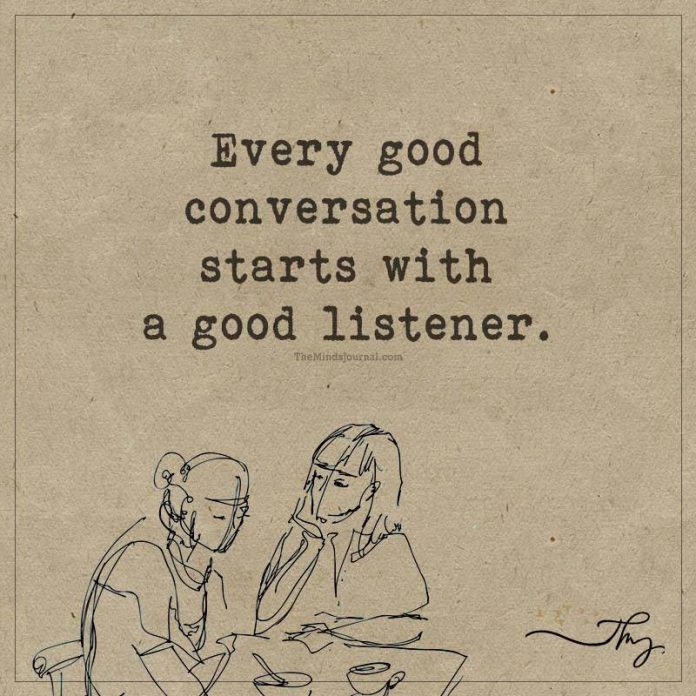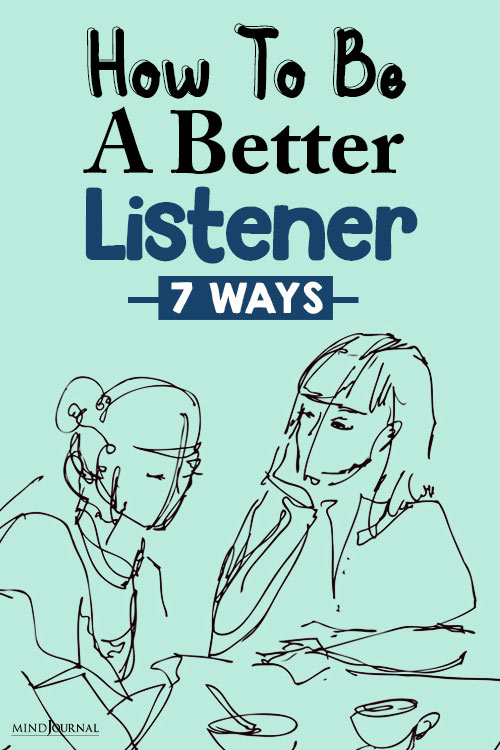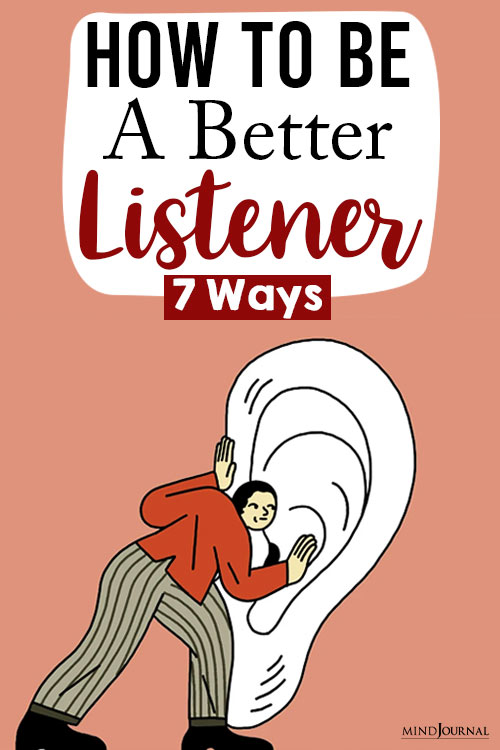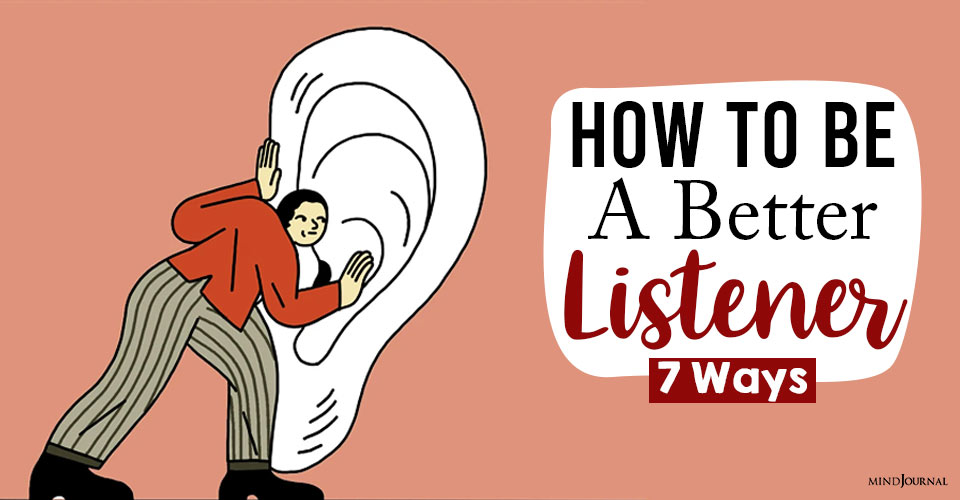Being a good listener is one of the best qualities to have, but sometimes it’s easier said than done. If you want to be a better listener, then know that there are ways to listen better.
Most of us are creatures of habit, listening to meet our needs or to pay attention to demonstrate we care whether we do or not. The next time you leave a conversation, ask yourself, “Did I get the outcome I desired?”. It’s possible you could have achieved more.
Before you meet or call someone, stop and ask yourself:
1. Why am I listening?
2. What do I want to happen?
3. What shift do I need to make to achieve the best outcome?
To make an informed choice, consider the following reasons for listening and the outcomes you might get depending on your mindset and emotions.
Related: The 5 Levels of Listening
Listening For Personal Need
Often the intention behind listening is to fulfill a personal need or to follow the rules you have been taught to show you care. When listening for information or perspective, you keep your distance. You stay in your head, maintaining isolation even when you say you want collaboration. The person feels little connection with you when you part.
You listen with the purpose…
1. To collect data.
You listen for how to argue, defend, compare or refine your own point of view.
2. To give an answer or solve a problem.
Once you have an answer, there is no further need to pay attention.
3. To obey the rules.
You listen because it is the right thing to do, generally for the minimal amount of time you think it takes to demonstrate the competency. You listen because you should, not because you want to.
Listening To Connect
When you choose to be present and connect with someone, you listen beyond your analytical brain. You are fully awake in your heart and gut as well as in your open mind. The person feels heard, valued, and possibly transformed as a result.[1]
You listen with the purpose…
4. To connect with the person.
When you desire to establish a connection, you go beyond paying attention to words. Connection starts with maintaining curiosity throughout the conversation, resisting the urge to know what is coming next while being at ease with not knowing. Feeling curious keeps you present.
Once you lose curiosity, you risk the conversation devolving into dueling monologues. Unfortunately, the better you know someone, the more likely you quit being curious enough to seek what could be new. Can you seek something special each time you say, “Hi, how are you?”

5. To let the person know you value them.
There is no greater gift you can give than to be fully present with someone so he or she feels heard, understood, and valued. When you quiet your mind with curiosity and open your heart with gratitude, the person feels received wholly beyond words.
Empathy happens when you value the essence of the person you are with. Be careful when your judgment sneaks in. You can feel passionately about your ideas without making others wrong. Value why the person sees the world differently from you. If you care enough to look deeply, you might feel valued in return.
Related: 3 Keys To Developing Empathy: How To Be The Best Listener Ever
6. To build the relationship.
The next step is to open your gut as well as your heart so you can be vulnerable enough to allow a deep connection to happen. Philip Shepherd said in New Self, New World, “Ultimately, to be present in the world means making room for the world to be present in you.”[2]
Don’t listen for something; listen for the purpose of being with the person. Have you ever felt this connection after a wonderful moment with a dear friend? When you trust enough to open yourself to someone else, the magic of a relationship emerges.
7. To explore, learn, and grow together.
As you increasingly ground yourself in being, the conversation can take you somewhere new and unexpected. Don’t anticipate or try to control it, just marvel where it goes. You share your ideas and then allow instead of resisting change when you hear theirs, adding to what you know instead of giving up.
You might lose your sense of time and space the more you engage. You may have had a conversation like this after experiencing a loss. You can consciously create this connection without trauma by accessing your love and courage.
Related: 44 Empathy Statements That Will Make You The Greatest Listener
Connecting with others this way is the same connection you sense when you view an awesome sunset, gaze across a beautiful canyon, or watch a burning star fall and disappear into the black of night. Letting go of what you know to grow shows strength; it is an active, not passive act. This is how we build community.
Alan Alda said, “Real listening is a willingness to let the other person change you.”[3]
What is your purpose for listening? Can you confidently open yourself to listen for a greater purpose? You will receive so much more than you expected when you do.
Read more about listening deeply in The Discomfort Zone: How Leaders Turn Difficult Conversations into Breakthroughs.
_____________
[1] Shari M. Geller and Stephen W. Porges, “Therapeutic Presence: Neurophysiological Mechanisms Mediating Feeling Safe in Therapeutic Relationships” Journal of Psychotherapy Integration, 2014, Vol. 24, No. 3, 178–192. [2] Philip Shepherd. New Self, New World: Recovering Our Senses in the Twenty-first Century. Berkeley: North Atlantic Books, 2010, p. 85. [3] Alan Alda, Never Have Your Dog Stuffed: And Other Things I've Learned. New York: Random House, 2005, p. 160.
Written By Marcia Reynolds Originally Appeared On Psychology Today










Leave a Reply
You must be logged in to post a comment.